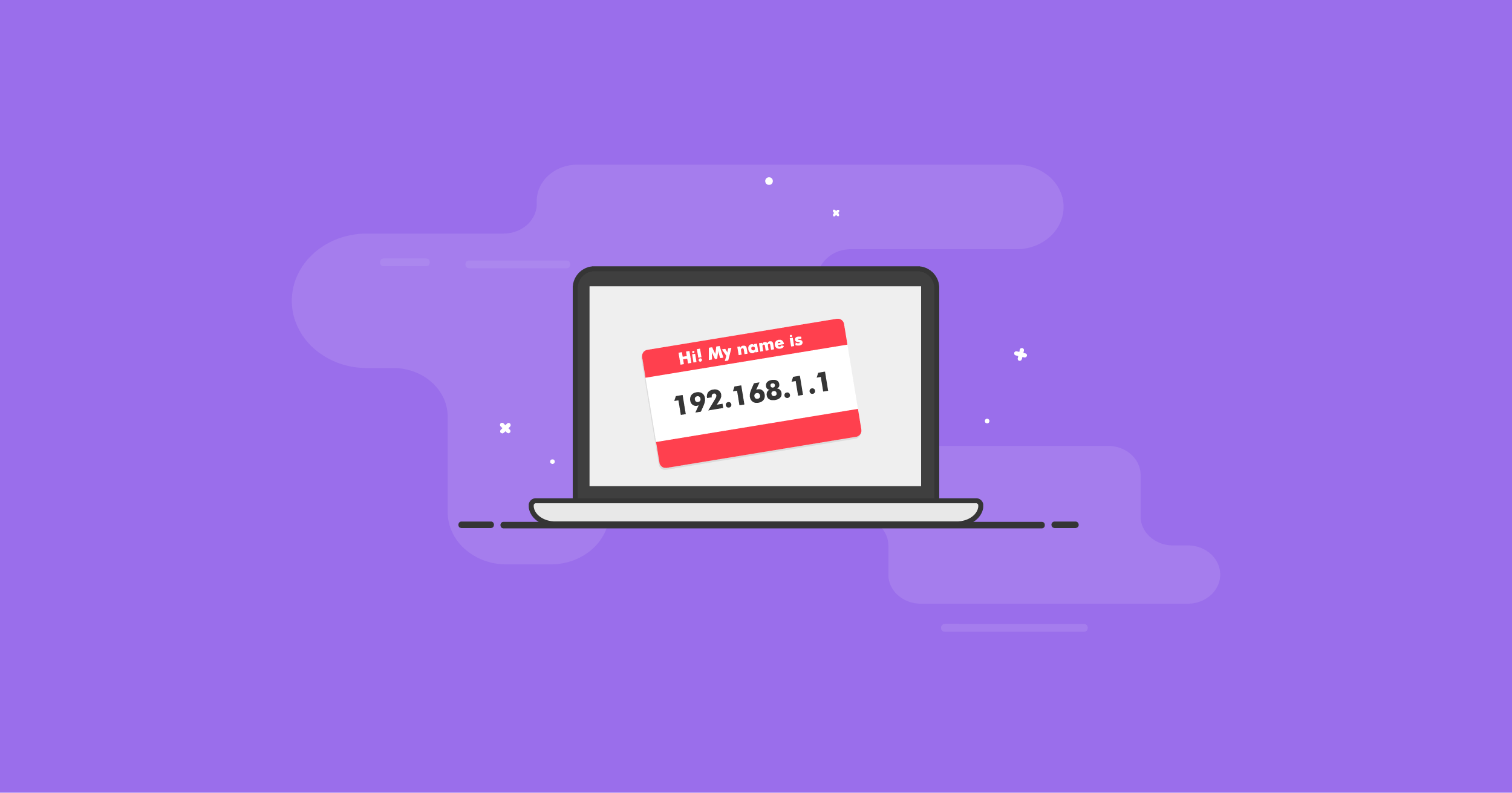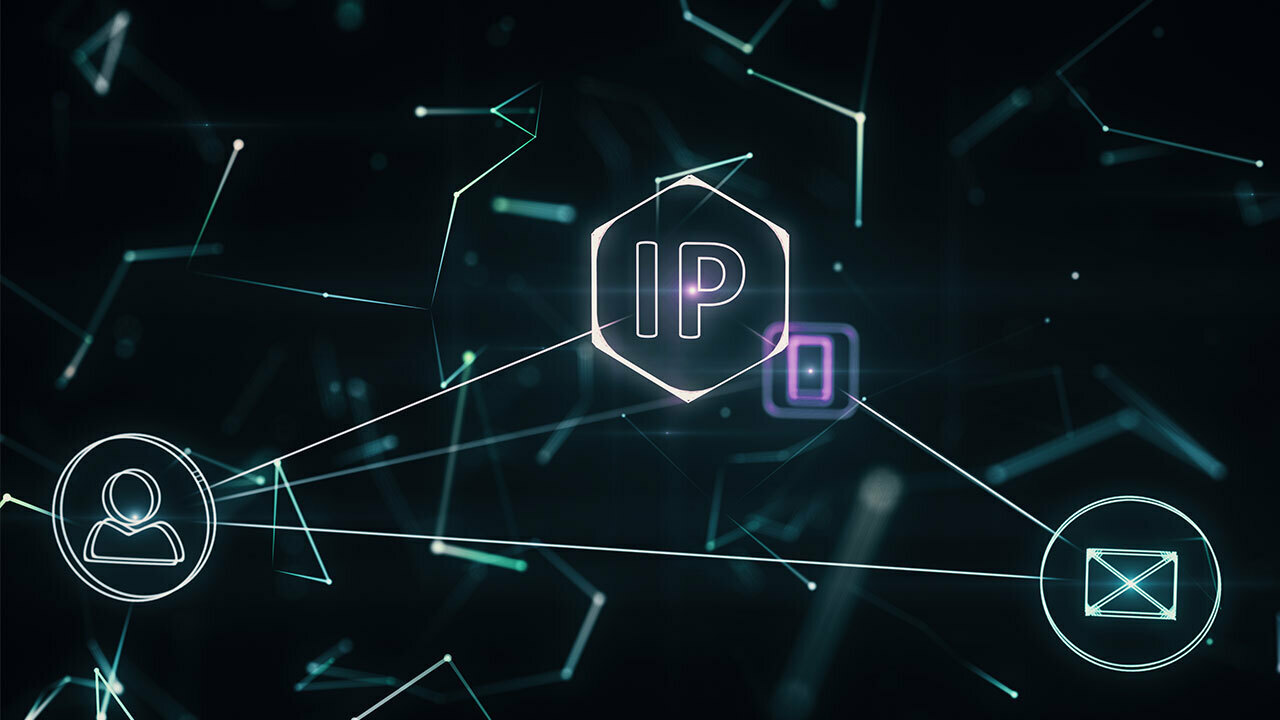What is IP address? The importance of IP addresses
An IP address is a unique address that identifies a device on the internet or a local network. IP stands for “Internet Protocol,” which is the set of rules governing the format of data sent via the internet or local network.
In essence, IP addresses are the identifier that allows information to be sent between devices on a network: they contain location information and make devices accessible for communication. The internet needs a way to differentiate between different computers, routers, and websites. IP addresses provide a way of doing so and form an essential part of how the internet works.
What is an IP address?
Your IP address is a unique identifier, kind of like a mailing address, associated with your online activity. Any time that you use the internet (shopping online, sending emails, streaming TV), you’re requesting access to a specific online destination, and in return, information is sent back to you. How does that work? Well the IP stands for Internet Protocol, which lays out the standards and rules (yes, otherwise known as the protocol) for routing data and connecting to the internet. This protocol is a set of rules each party needs to follow to allow for a bi-directional flow of data.

Does it travel with you?
No. Your IP address is only associated with one location unless you are using a VPN (we will get more into that later). When you are at your home and connecting to the internet you pay for, you are using one. However, if you check your email at home in the morning, then scan the news at a local coffee shop while waiting for your coffee, and then work from an office, you will have used different IP addresses at each location.
How do IP addresses work
If you want to understand why a particular device is not connecting in the way you would expect or you want to troubleshoot why your network may not be working, it helps understand how IP addresses work.
Internet Protocol works the same way as any other language, by communicating using set guidelines to pass information. All devices find, send, and exchange information with other connected devices using this protocol. By speaking the same language, any computer in any location can talk to one another.
The use of IP addresses typically happens behind the scenes. The process works like this:
- Your device indirectly connects to the internet by connecting at first to a network connected to the internet, which then grants your device access to the internet.
- When you are at home, that network will probably be your Internet Service Provider (ISP). At work, it will be your company network.
- Your IP address is assigned to your device by your ISP.
- Your internet activity goes through the ISP, and they route it back to you, using your IP address. Since they are giving you access to the internet, it is their role to assign an IP address to your device.
- However, your IP address can change. For example, turning your modem or router on or off can change it. Or you can contact your ISP, and they can change it for you.
- When you are out and about – for example, traveling – and you take your device with you, your home IP address does not come with you. This is because you will be using another network (Wi-Fi at a hotel, airport, or coffee shop, etc.) to access the internet and will be using a different (and temporary) IP address, assigned to you by the ISP of the hotel, airport or coffee shop.

Types of IP addresses
As of now, IP addresses are of two types:
IPv4
The IPv4 or Internet Protocol Version 4 is an older version of the newer IPv6, this version works on a 32bit number system. It is still in use and is holding up pretty well against the test of time. However, as the network increased, the need for a better protocol version was required and hence the IPv6 was created.
IPv6
The IPv6 was created in 1995, and deployed in the public domain in 2000. To manage the ever-growing number of users on an ever-growing network, the 32bit number system wasn’t enough. Hence a 128bit protocol version was created to manage the growing number of networks and users.
The Importance Of IP Addresses
IP addresses are as much important as a person’s unique identification card or number. It assures security for your benefits and promotes your creativity towards the field or fields you as a user are interested in. Be it a business, a blogging website, or even an educational website concerned with providing useful material for college-going students, an independent IP address is extremely necessary. As the technology is adapting faster than the human gene itself, one can only imagine the advent of newer avenues of an ever-growing network, and to manage these networks to every last user we all need IP addresses.
Hence, IP addresses are as much important as your house keys, without which it would be quite difficult to get into your network, or in other words, it is as important as a blip on a Google map showing your home. But remember, using it wisely shall grant you immense wealth and status depending upon your work and creativity. So next time before you log into your browser, just think about your PC’s address once, it needs its fair share of attention as well!
VPS means your IP address belongs only to you
When you choose a Virtual Private Server (VPS) for your hosting solution, you have a single IP address assigned to your server which isn’t shared with other servers. You control what your server does, which means you can ensure that it’s not used for spamming, phishing, or hosting malware, preventing it from falling foul of the various blacklists and blocklists. Whether you are hosting a website or sending email, this should mean things run more smoothly for you, and that no one else can affect your search engine rankings.